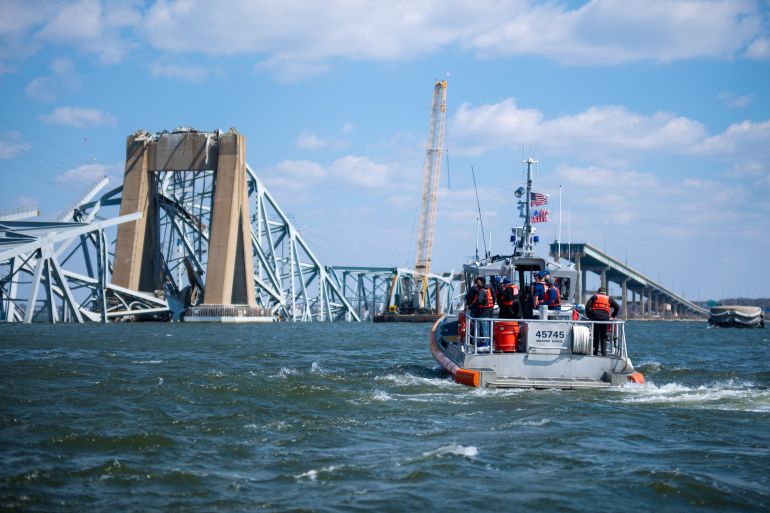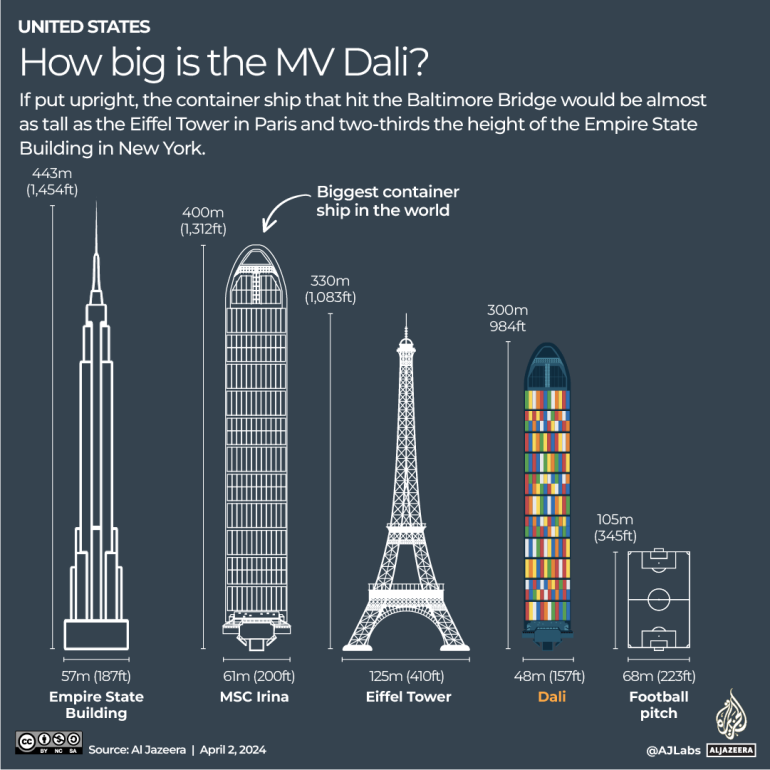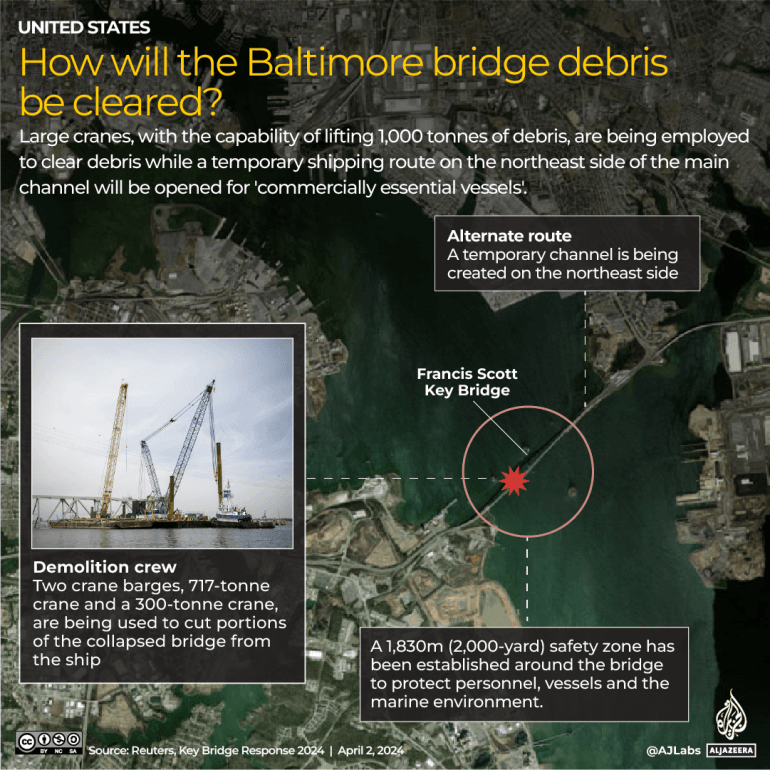How will the Baltimore Key Bridge debris be cleared?
A temporary route for vessels has opened in Baltimore following the collision of a cargo vessel with a major bridge last week.

The first vessel has passed through a temporary alternate channel created around the Francis Scott Key Bridge in Baltimore, which was damaged last week after a cargo vessel collided with it.
On March 26, six people died when the Dali container ship hit the 2.5km (1.6-mile) long bridge in the early hours of the morning.
Keep reading
list of 4 itemsTwo bodies recovered from Francis Scott Key Bridge disaster in Baltimore
Baltimore Key Bridge collapse investigation
Baltimore Key Bridge collapse: All we know about the ship crash and victims
Captain David O’Connell, the coastguard commander of the Maryland sector, said it is “an important first step along the road to reopening the port of Baltimore”, one of the busiest in the United States.
A secondary provisional route for deeper vessels will also open in the upcoming days, officials said, as attempts are made to remove debris.

What happened to the Baltimore Bridge?
- On March 26, at about 1:28am (05:28 GMT), the Singapore-registered vessel, en route to Colombo, Sri Lanka, collided with one of the pillars supporting the Francis Scott Key Bridge in the city on the East Coast of the US. According to a report by ABC News, the ship “lost propulsion” as it was leaving port, and its crew notified Maryland officials they had lost control of the vessel.
- Cars using the bridge fell into the Patapsco River and six workers died. Two bodies have since been recovered from the water while the other four remain missing.
- Local pilots were guiding the ship at the time of the accident, according to Maryland Transportation Secretary Paul Wiedefeld.
- Authorities said all 22 crew members on the Dali and the two pilots were accounted for and there were no reports of injuries.
How big is the Dali?
- It is 300 metres (984 feet) long. If put upright, it would be almost as tall as the Eiffel Tower in Paris or The Shard in London and about two-thirds of the Empire State Building in New York.
- The vessel has a deadweight tonnage of more than 116,000 tonnes and a container capacity of almost 10,000 20-foot equivalent units.
- The Dali was carrying 4,700 containers when it struck the Key Bridge.

What is the economic cost?
- Baltimore’s port handles farm and construction machinery, sugar, gypsum and coal as well as imports and exports for leading automakers, including Nissan, Toyota, General Motors, Volvo, Jaguar and Land Rover, according to Reuters news agency.
- It is the ninth-largest US port in terms of overall trade volume.
- In 2023, the port handled about 50 million tonnes and $80bn of cargo moving between the US and other countries.
- During a briefing at the bridge collapse scene, the US representative for Maryland, David Trone, said state and federal officials estimated the port’s closure would cost the economy as much as $15m per day.
What are the plans for removing the debris?
- Trained demolition crews have been cutting through the collapsed bridge truss using specialist machinery, according to a statement released by Mayor Brandon M Scott on Saturday.
- The Chesapeake 1000 – a massive floating crane – arrived on Friday near the collision site. It is capable of lifting 1,000 tonnes of debris.
- Two crane barges, a 650-tonne crane and a 330-tonne crane, are actively working on the scene. The task is estimated to take two to three weeks. The debris will then be transferred by barge and a 230-tonne land-based crane will process the wreckage at Tradepoint Atlantic.
- A 2,000-yard (1,829-metre) safety zone has been established around the wreckage to prevent vessels and personnel from entering the area.

- Additionally, preparations were made to establish an alternative channel on the northeastern side of the main channel to allow for “commercially essential vessels” to pass on Monday.
- The new temporary channel, marked with government-lighted aids to navigation, will be limited for transit and used during daylight hours only.
- Officials are working to establish a second, temporary alternate channel on the southwest side of the main channel. This second channel will allow for deeper draft vessels.